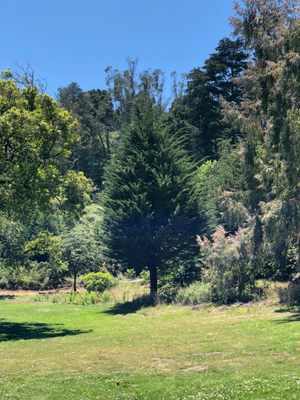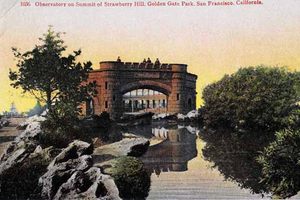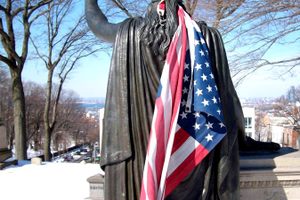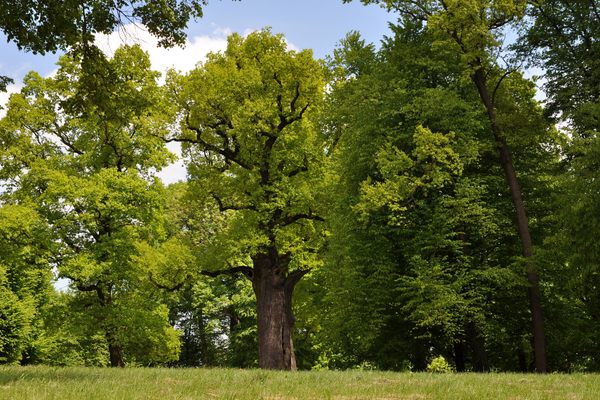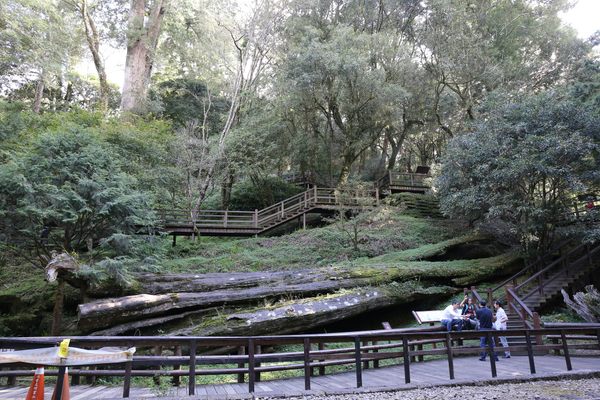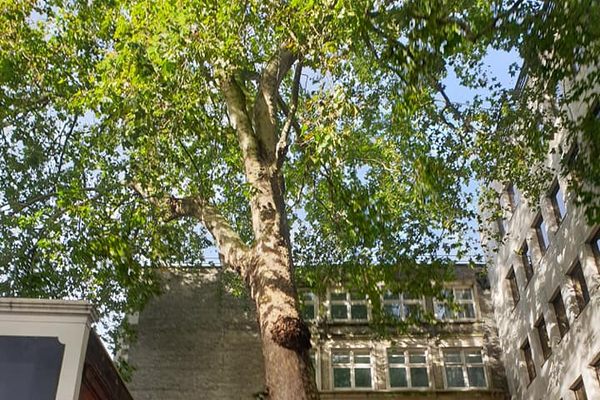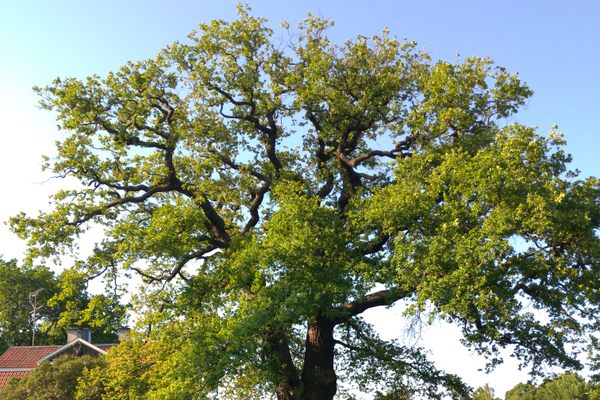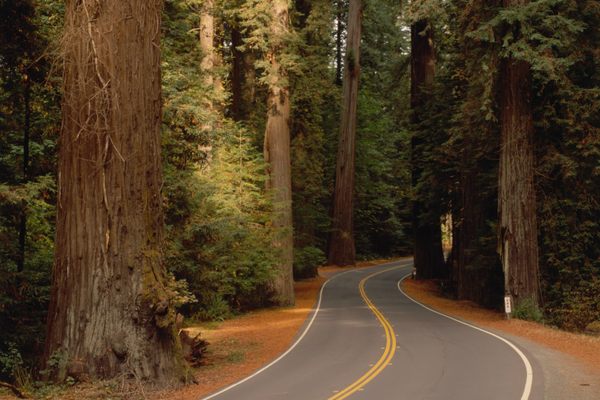About
Once topped by flags declaring their native state alliance, the thirteen trees that make up the Arch of Colonial Trees near the Pioneer Cabin are now easy to miss.
Today, a small marker on a nearby boulder is the only indication that they are something special. The trees were planted in October 1896, following the end of the California Midwinter International Exhibition. During the fair, the meadow was home to a very popular recreation of an 1849 gold miner’s camp.
The Sequoia chapter of the Daughters of the American Revolution selected and planted the trees using soil from famous revolutionary battlefields and a silver trowel allegedly used by Martha Washington at Mount Vernon. Each tree is a different type, native to the area it represents. The center tree — a hemlock representing Pennsylvania — included earth from the Paris grave of M. de Layfayette is flanked on the left by the other Northern Colonies and on the right by the Southern Colonies. The dedication ceremony was held to commemorate the 115th anniversary of the 1781 surrender of the Battle of Yorktown.
In March 2012, a dedication ceremony and planting session was held by La Puerta de Oro, the contemporary San Francisco chapter of Daughters of the American Revolution of San Francisco, to replace the magnolia for South Carolina and a hemlock for Pennsylvania.
//
Order of Trees (left to right):
New Hampshire - Sugar Maple; from homestead of General Stark
Massachusetts - Elm; from the Old North Bridge at Concord
Rhode Island - Black Walnut since 2014; formerly a White Birch from the birthplace of General Nathaneal Greene
Connecticut - Black Walnut since 2014; formerly a White Oak grown from the seedling of a Charter Oak
New York - White Oak; from the battlefield of Saratoga
New Jersey - White Linden; from a home once the headquarters of General George Washington
Pennsylvania - Hemlock since 2012; formerly a Cedar from Valley Forge
Delaware - Maple from Belmont Hill since 1976; formerly a Red Maple
Maryland - Liquid Amber
Virginia - Tulip Tree since 2014; formerly a Chestnut Tree from the grave of Thomas Jefferson
North Carolina - Red Maple since 2012; formerly a Pine and a Hackberry
South Carolina - Magnolia
Georgia - Live Oak since 1976; formerly a Catalpa
Related Tags
Community Contributors
Added By
Published
July 4, 2016
